How Cancel Culture Really Works: Being Critical in Media
Screenshot of three the many videos about Shane Dawson on Youtube. All each are at least an hour long, talking about his behavior in the past and present.
September 2, 2020
Note: Any links related to specific cases of cancel culture have discussions about sensitive topics. Links related to JK Rowling will have examples of transphobia. Links related to Shane Dawson will have examples of pedophilia, racism, and beastiality.
Cancel culture is making sure that what content you consume is non-problematic. The words “being critical in media” are frankly, more accurate to describe what cancel culture entails. It’s making sure that someone doesn’t get the fame they deserve over the harm they’ve dealt with, right?
Well not exactly; it does play a part in what defines taking accountability and being critical in the media. People generally want to be around people who share the same views as them, whether it be for entertainment or politics, and at this point those two things can go hand in hand…
When people find out about bad things a person has done, especially a celebrity, they either 1) stop interacting with their content immediately, or 2) doubt the information and dismiss it as false. People can go ride or die in the parasocial relationship they are in.
Dialing it back, “Parasocial relationships are one-sided relationships, where one person extends emotional energy, interest and time, and the other party, the persona, is completely unaware of the other’s existence.” This can come in the form of stans on Twitter, or just in general, avid fans.
This is not a healthy way to interact with the media.
How people interact with the media varies from person to person and how much they go on social media — as the person writing this, I have been on the internet a lot longer than I would like to admit. There are many times when a show, or person, or whatever gets twitter cancelled and people jump into conclusions so quickly and let me tell you, they do not let go.
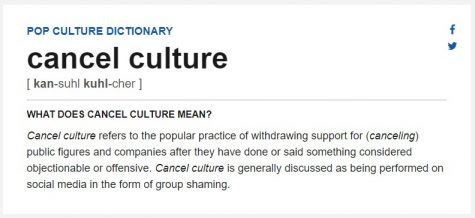
No doubt that there are people who are capable of change, in their stances and viewpoints, but celebrities and internet personalities on the other hand? Their past actions do not define them to the present day, but people who look up to them are looking for accountability.
“[You’re] an influencer to a large audience,” Senior Tiffany Vo said, “Influencers are always being watched so I would say you have to be very careful with your words and actions at all times because anything could be used against you.”
This is how you get cases like Shane Dawson or JK Rowling who, in hindsight, have had a big impact over spreading offensive and harmful behavior. (Recently, there are many videos related to Shane Dawson, please watch with caution.) Whether intentionally or not, it still hurt people. Ex-fans don’t like them anymore because they have been proven to be openly harmful to a wide and influenceable audience who would be able to take those habits and spread it to their own lives.
It’s not shameful to be influenced like this, but no doubt did it cause problems because of it.
You might be asking, ‘But these are celebrities, how does that apply to the audience — the fans? What’s so important that explaining how cancel culture can be dumb? It’s already known to be pointless drama in the long run.’
Well as an audience, we have to take accountability in what media we consume as well. In my experience on the internet, a lot of people I’ve looked up to in the past have not been the best person I saw growing up. For a lot of people, they haven’t experienced the utter disappointment and shame they’ve felt when evidence comes up before. Putting a person, or even a show on a pedestal is not an ideal situation to be in, even the “best example” has its own flaws.
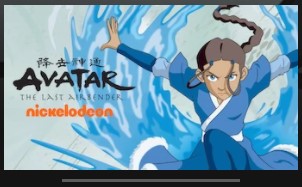
Let’s take for example, Avatar: The Last Airbender, revered and highly praised for being one of the best cartoons and defining what it means to have a good redemption arc for a past antagonist. Recently put on Netflix again and a new surge of fans are appearing everywhere.
Growing up with this cartoon, I loved every bit of it to pieces, it was a representation of Asian culture that as an Asian American in the early 2000s, I didn’t get to see in other media. Back then, there was no push for diversity, there was no She-Ra and the Princesses of Power, there was no Craig of the Creek, and there was no Steven Universe.
However, even holding A:TLA ever so dear to my heart, I now know that it’s not an actual good representation of Asian culture whatsoever. At face value, it was a show developed by two white men who, in hindsight, most likely took the basic aesthetics of cultures that were not theirs, took the bare minimum of research, and slapped it onto their story that in some aspects would not represent the cultures they were inspired by accurately.
“I watch shows for the plot and development of the characters and story. If a character has a certain view, I think of it as a small thing that pertains to a character, I don’t think of it as offensive unless the character expresses racism, sexism, etc,” Senior Shania Rangingisan said. “When those topics occur, I still watch it, I just have an opinion against their views.”
Celebrities, influencers, and creators in general just have a bigger responsibility because all their actions have a chance to go public. Being critical in the media is being smart in interacting with the media. Nothing is beyond criticism and that’s true, anything that’s created, someone somewhere is going to be offended by it, or have a problem with it. There are bad things to every good, that’s just a fact.
Interacting with the media doesn’t always have to be a “yes, and-”, it can be a “yes, but-” where you acknowledge the flaws of the media, are aware of the harmful effects of it, and interact in a safer way.
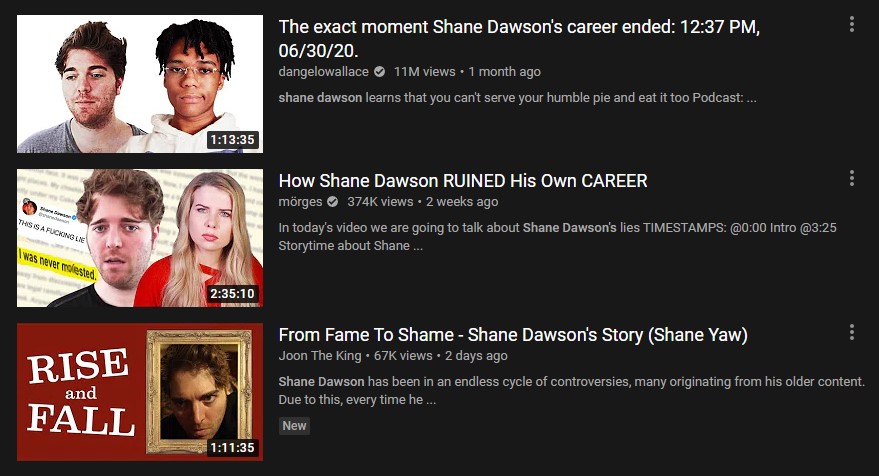





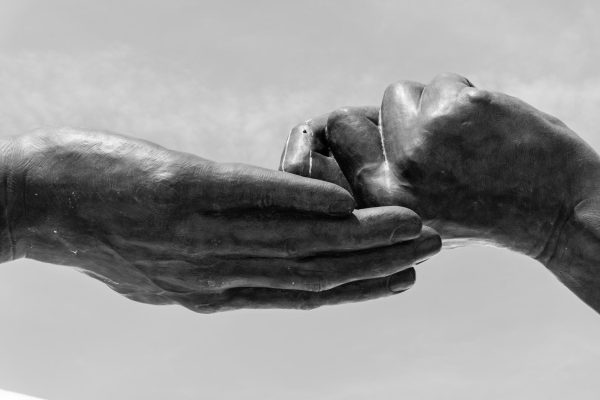


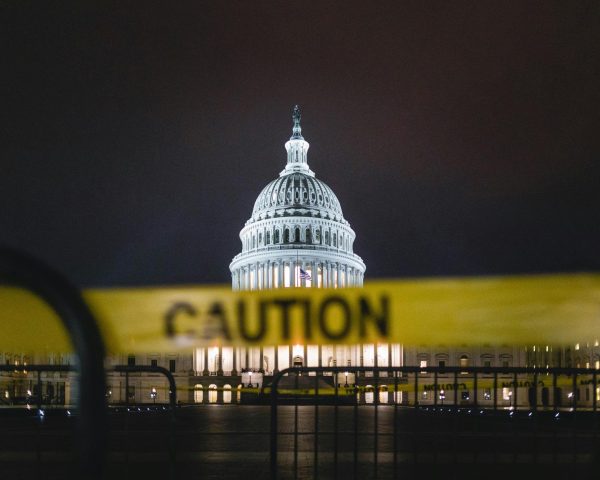
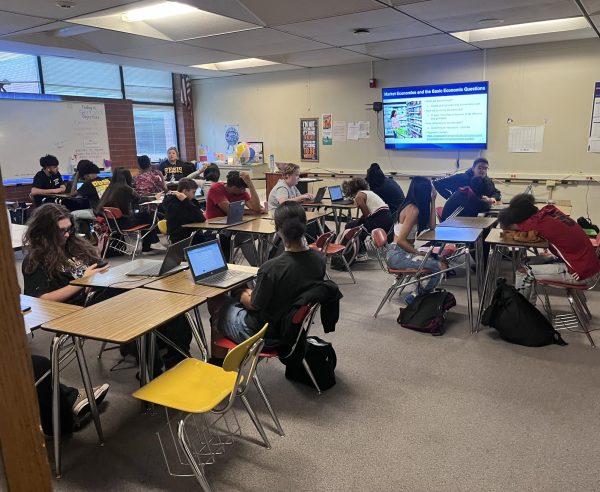
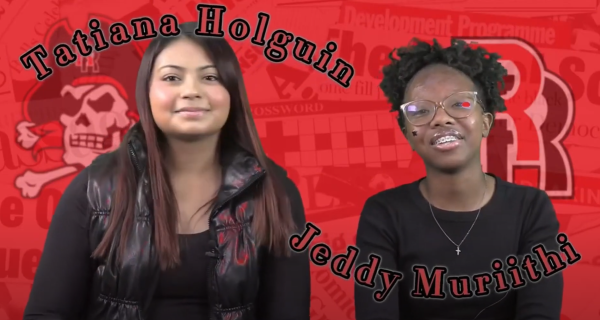
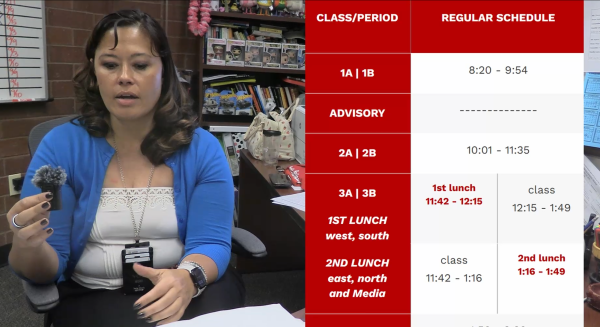
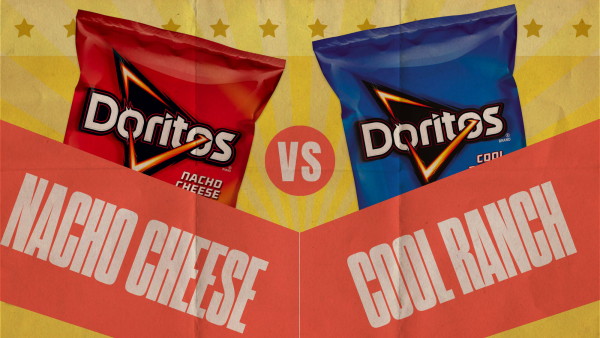
Zaki The greek warrior bpy • Nov 3, 2022 at 11:01 AM
Lol katara make a waterbending